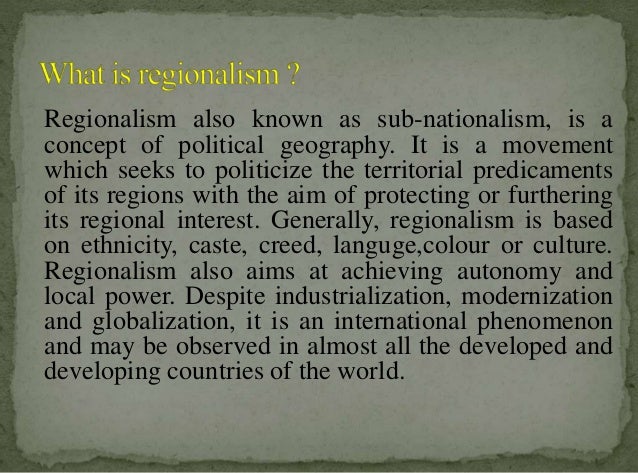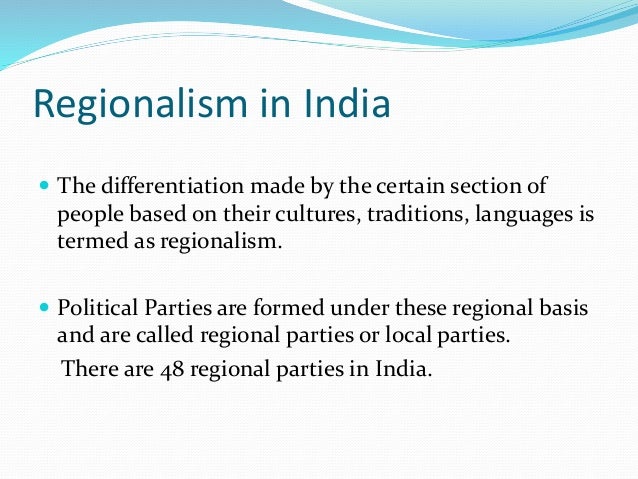Regionalism: Sociology
Relevance: Sociology: Politics and Society: Regionalism and decentralization of power.
G.S paper I: Society: Social empowerment, communalism, regionalism & secularism.
Regionalism is an approach to study the behaviour that emphasizes the geographical region as the unit of analysis, stressing the relationship between man and his immediate physical environment. Economic social and cultural organisations are analyzed in terms of their interrelationships and functions within the geographic region.

Berry and Hankin have recognized three types of regions:
- The region in general sense in which the region is given a priority.
- A homogenous or uniform region—This is defined as an area within which the variations and co-variations of one or more selected characteristics face within some specified range of variability around a norm, in contrast with areas that fall outside the range. Such a region, unlike previously described, but like the functional region, is the result, of the process of regionalization and is not given ‘a priori.’
- A region of “coherent organization’ or a ‘functional region.’ — This region is defined as one in which one or more selected phenomena or movement connect the localities within it into a functionally organized whole.”
In the Indian Scenario, regionalism may be viewed from a couple of dimensions positive and negative. From the positive angle regionalism embodies a quest for self-identity and sell-fulfillment on the part of the domiciles of a region. In negative terms, “regionalism reflects a psyche of relative deprivation on the part of people of an area not always viable in terms of rational economic analysis. It is mostly believed that deprivation is purposefully inflicted by the powers.

Characteristic Features:
- Regionalism is a psychic phenomenon.
- It is built around as an expression of group identity, as well as loyalty to the region.
- It presupposes the concept of development of one’s own region without taking into consideration the interest of other region.
- It prohibits people from other regions to be benefitted by a particular region.
Types of Regionalism:
Though the typology of regionalism is an overlapping concept, a state is widely accepted as a unit for evolving the types of regionalism.
Three main types of regionalism may be conceived on that basis.
First type of regionalism may be designated as supra —state regionalism which is an expression of group identity of several states. In this type of regionalism, the group of states join hands to take common stand on the issue of mutual interest vis-a- vis another group of states or at times against the union. The group identity thus forged is negative in character and based on specific issue or issues.
It is not an instance of permanent merger of state identities in the collective identity. Even at times inter-group rivalries, tensions, and conflicts may tend to persist, simultaneously along with their cooperation. North Eastern states in India may be said to have possessed the supra-state regionalism.
The Second type of regionalism may be designated as inter-state regionalism which is coterminous with provincial territories and involves juxtaposing of the identities of one or more states against another. It is also issue specific. The issue is highlighted because it sabotages their interest. Disputes between Karnataka and Tamil nadu over the distribution of Kaveri water may be construed as inter-state regionalism.
The Third type of regionalism refers to intra-state regionalism wherein a part of the state strives for self identity and self development and therefore, it is taken in a positive sense. In negative terms it militates against the collective interest of the state as well as the nation. As for instance there is always a feeling of coastal region and western region in Orissa.

